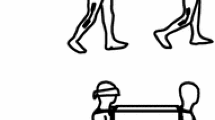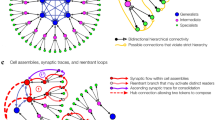Abstract
Traditional approaches to modeling cognitive systems are computational, based on utilizing the standard tools and concepts of the theory of computation. More recently, a number of philosophers have argued that cognition is too ‘subtle’ or ‘complex’ for these tools to handle. These philosophers propose an alternative based on dynamical systems theory. Proponents of this view characterize dynamical systems as (i) utilizing continuous rather than discrete mathematics, and, as a result, (ii) being computationally more powerful than traditional computational automata. Indeed, the logical possibility of such ‘super-powerful’ systems has been demonstrated in the form of analog artificial neural networks. In this paper I consider three arguments against the nomological possibility of these automata. While the first two arguments fail, the third succeeds. In particular, the presence of noise reduces the computational power of analog networks to that of traditional computational automata, and noise is a pervasive feature of information processing in biological systems. Consequently, as an empirical thesis, the proposed dynamical alternative is under-motivated: What is required is an account of how continuously valued systems could be realized in physical systems despite the ubiquity of noise.
Similar content being viewed by others
Explore related subjects
Discover the latest articles, news and stories from top researchers in related subjects.References
M.P. Casey (1996) ArticleTitle‘The Dynamics of Discrete-Time Computation with Application to Recurrent Neural Networks and Finite State Machine Extraction’. Neural Computation 8 IssueID6 1135–1178 Occurrence Handle10.1162/neco.1996.8.6.1135
M. Davis (1965) The Undecidable: Basic Papers on Undecidable Propositions,Unsolvable Problems and Computable Functions Raven Press Hewlett, NY
C. Eliasmith (2001) ArticleTitle‘Attractive and In-discrete’ Minds and Machines 11 417–426 Occurrence Handle0972.68687 Occurrence Handle10.1023/A:1017542632653
C.A. Fields (1989) ArticleTitle‘Consequences of Nonclassical Measurement for the Algorithmic Description of Continuous Dynamical Systems’. Journal of Experimental and Theoretical Artificial Intelligence 1 171–189 Occurrence Handle10.1080/09528138908953699
J. Fodor (1975) The Language of Thought MIT Press Cambridge, MA
J. Fodor (1998) Concepts: Where Cognitive Science Went Wrong Oxford University Press Oxford, UK
J. Fodor E. Lepore (1992) Holism: A Shopper’s Guide Blackwell Publishers Oxford, UK
R.F. Hadley (2000) ArticleTitle‘Cognition and the Computational Power of Connectionist Networks’. Connection Science 12 IssueID2 95–110 Occurrence Handle10.1080/09540090050129745
J. Haugeland (1991) ‘Representational genera’ W. Ramsey S.P. Stich D.E. Rumelhart (Eds) Philosophy and Connectionist Theory Erlbaum Hillsdale, NJ
J.E. Hopcroft J.D. Ullman (1979) Introduction to Automata Theory,Languages and Computation Addison-Wesley Reading, MA Occurrence Handle0426.68001
T. Horgan J. Tienson (1996) Connectionism and the Philosophy of Psychology MIT Press Cambridge, MA
T. Horgan (1997) ArticleTitle‘Connectionism and the Philosophical Foundations of Cognitive Science’. Metaphilosophy 28 1–30 Occurrence Handle10.1111/1467-9973.00039
W. Maass P. Orponen (1998) ArticleTitle‘On the Effect of Analog Noise on Discrete Time Analog Computations’. Neural Computation 10 IssueID5 1071–1095 Occurrence Handle10.1162/089976698300017359
W. Maass E. Sontag (1999) ArticleTitle‘Analog Neural Nets with Gaussian or Other Common Noise Distribution Cannot Recognize Arbitrary Regular Languages’. Neural Computation 11 771–782 Occurrence Handle10.1162/089976699300016656
B. McLaughlin (1993) ArticleTitle‘The Connectionism/Classicism Battle to Win Souls’. Philosophical Studies 71 163–190 Occurrence Handle10.1007/BF00989855
F. Rieke (1997) Spikes: Exploring the Neural Code MIT Press Cambridge, MA
H.T. Siegelmann E.D. Sontag (1994) ArticleTitle‘Analog Computation via Neural Networks’. Theoretical Computer Science 131 331–360 Occurrence Handle0822.68029 Occurrence Handle10.1016/0304-3975(94)90178-3 Occurrence Handle1288945
H.T. Siegelmann (1999) Neural Networks and Analog Computation: Beyond the Turing Limit Birkhäuser Boston Occurrence Handle0912.68161
H.T. Siegelmann (2000) ‘Finite versus infinite neural computation’ C.S. Calude G. Paun (Eds) Finite vs Infinite:Contributions to an Eternal Dileitmma Springer London
Turing, A.M. (1936), ‘On Computable Numbers, with an Application to the Entscheidungsproblem’, Proceedings of the London Mathematical Society 42(series 2), pp. 230–256.
T. Van Gelder (1995) ArticleTitle‘What Might Cognition be, if not Computation?’. Journal of Philosophy 91 IssueID7 345–381 Occurrence Handle10.2307/2941061
T. Van Gelder (1997) ‘Dynamics and Cognition’ J Haugeland (Eds) Mind Design II MIT Press Cambridge, MA 421–476
Author information
Authors and Affiliations
Corresponding author
Rights and permissions
About this article
Cite this article
Schonbein, W. Cognition and the Power of Continuous Dynamical Systems. Mind Mach 15, 57–71 (2005). https://doi.org/10.1007/s11023-004-1345-6
Issue Date:
DOI: https://doi.org/10.1007/s11023-004-1345-6




